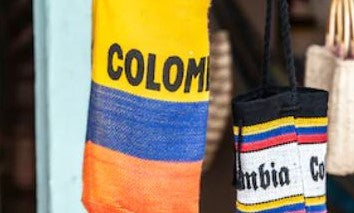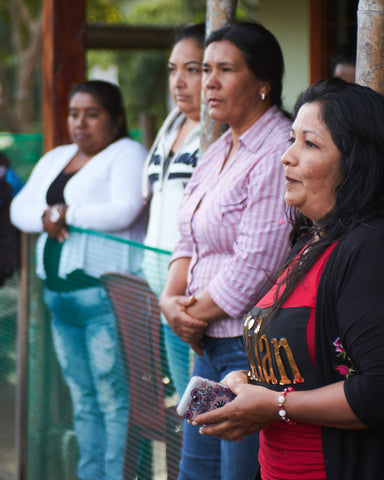This month, we are introducing a new coffee from Colombia so what a great opportunity to let you know a bit about Colombian coffee and this specific coffee which comes from an all women producer’s cooperative.
COLOMBIA AND COFFEE – the (hi-)story
Colombia and coffee are a bit like a couple that have been together for a lifetime. It is not only because of the amount of years coffee has been cultivated in Colombia (nearly 300 years of coffee history) but it is also because of how Colombia has become synonymous with coffee.
Coffee production in Colombia goes all the way to the 18th century when Jesuit priests started to arrive amongst the Spanish colonists. The first seedlings were planted in the north of the country and spread to the rest of the country from there.
So, the story goes that the leaders of Colombia tried to encourage their people to grow coffee, but their ideas were opposed by the population. The reason? Because a coffee tree takes five years to provide its first crop and they quite rightfully wondered how the hell they were going to survive during this period! Then, someone called Francisco Romero, a priest, had an (not so honest!) idea: instead of the typical penance at confession he asked them to plant 3-4 coffee trees. This was taken to be an excellent idea by the Archbishop of Colombia and placed the order for everyone to use this penance and thus became general practice.
THE DEVELOPMENT OF COLOMBIA’S COFFEE INDUSTRY
 So, by the end of the 19th century production had increased to more than 600,000 bags and coffee had by now become Colombia’s main foreign exchange export product. The fall in international prices at the end of the 19th and the start of the 20th century affected all of the large estates’ profitability which took a huge dive. As the majority of the coffee farms were large estates this obviously had a huge impact. They incurred huge foreign debts in order to try and develop their farms further, but this ruined them instead.
So, by the end of the 19th century production had increased to more than 600,000 bags and coffee had by now become Colombia’s main foreign exchange export product. The fall in international prices at the end of the 19th and the start of the 20th century affected all of the large estates’ profitability which took a huge dive. As the majority of the coffee farms were large estates this obviously had a huge impact. They incurred huge foreign debts in order to try and develop their farms further, but this ruined them instead.
There is always an opportunity to be had amidst difficult times which can bring change for the better so this is when one of the most significant changes of Colombia’s coffee industry took place and small farmers were able to enter the coffee market. From that point on they have been able to grow and grow. A number of events took place in later years that really helped the coffee industry in Colombia and in 1984 the Café de Colombia distinctive hallmark was created, which identifies it in every corner of the world.
ALL WOMEN PRODUCERS – AMACA co-op
Colombia has huge choice when it comes to coffee, but we were won over with this one, not only because of how it cupped, but also how its produced and how we feel we should be supporting this.

So, what am I talking about?
Well, the AMACA (Asociación de Mujeres Productoras Agropecuarias del Cauca) is a group of women producers located in EL Tambo, Colombia’s Cauca department. The association was formed in 1999 by 80 women from El Tambo. Currently, the association has 140 members, all smallholder, all women farm owners, and heads of household to boast. These incredible women have managed to derive their livelihood and that of their families entirely from the cultivation and production of coffee.

As an association, AMACA was able to partner with the Ministry of Agriculture and the municipality of El Tambo and the Governor of Cauca, back in 2008. This enabled an increase in production and quality of coffee on 80 of the members farms. Two years later, in 2010, an organisation named ‘Social Action’ supplied new wet mills and processing tanks to 22 of the farms.
As I mentioned above, today, the cooperative has 140 members – they all come from three different villages across the El Tambo municipality. Their average farm size is 1 hectare and that is a whopping 5,000 trees per member. However, there are members with have 3+ hectares and some with less than one.

They harvest and process the coffee within their own farms. They hand pick only fully ripe cherries and they get depulped on the same day as harvest.

Drying happens on raised beds inside parabolic dryers.
These women have come a long way and have worked and continue to work incredibly hard to achieve everything they have. Their coffees are simply fantastic! Their mantra is simply to improve the quality of life for their members and their families.
Purchasing this coffee not only guarantees you super tasting coffee it will also help these incredible women continue build on their quality of life through their love for coffee!
Grab your bag now!
https://quantumroasters.co.uk/collections/south-america/products/colombia-coffee-beans


